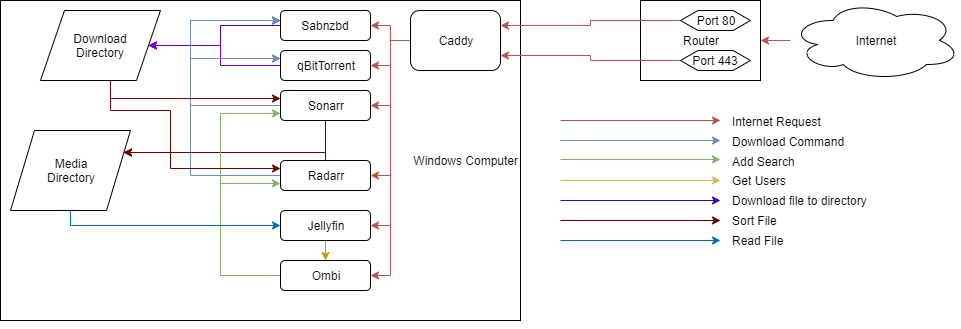

Least year I paid $485 cdn for 22 tb wd red pro drives. Right now the same drives are $749 cdn.
It’s already too late


Least year I paid $485 cdn for 22 tb wd red pro drives. Right now the same drives are $749 cdn.
It’s already too late


For the ones I imported it seems like the location data is still there


Export your photos with take out
Then use immich-go to import


Honestly the best thing to do is just start trying things and don’t only rely on your own stuff until you have a good understanding.
Just get an old computer and install an os you want to learn, worst case you break it and reinstall.
I suggest proxmox since you can lean on community scripts and can backup and restore any containers pretty easily if needed.
But as with anything don’t go in expecting to be perfect, just get started, break some eggs and learn from mistakes. You will learn what you like about it, what you would change and you can burn it all down and start again if you want as well.


If you use tailscale you could pretty easily get similar results.
Tailscale to broker connections between devices and then access with the tailscale IP address


I too have lifetime Emby and still use it today. Media browser renamed to Emby. They took the M and B from the old name to get the new one.



Here’s a very old flow chart I made for some folks that didn’t want to use Linux. Though it mostly applies to any serup


While fair, now you have to have JavaScript enabled in the page which I think was the point. It was never able having only a little bit. It was that you had to have it enabled


That would make the website feel ultra slow since a full page load would be needed every time. Something as simple as a slide out menu needs JavaScript and couldn’t really be done server side.
When if you said just send the parts of the page that changed, that dynamic content loading would still be JavaScript. Maybe an iframe could get you somewhere but that’s a hacky work around and you couldn’t interact between different frames
If your able to spoof a different mac address and your ISP should assign you a different IP address


This confuses me a bit, technically nextcloud is just a PHP script that only runs when you actually perform a page request.
If you don’t enable the Cron then it does even less than a normal install.


Depending on what services you want to give access with, I have had great luck with an ultra cheap VPS
https://lowendbox.com/blog/1-vps-1-usd-vps-per-month/
Then I host my edge services on a container and use an ssh tunnel to the remote host which gives me an ipv4 and any port forward that I want.
For example I have my reverse proxy inside my network and my VPN server then I use a command like:
ssh -R 8080:localhost:80 public.example.com
Which would forward publicip:8080 to localhost:80
Read more here: https://www.ssh.com/academy/ssh/tunneling-example.
I use autossh to keep the tunnel alive at all times.
https://www.harding.motd.ca/autossh/
This is an ultra cheap way to get any ports you want and self host the whole thing. The remote VPS also doesn’t get any extra access to your local network and doesn’t initiate the connection so it doesn’t have credentials for your local network


Really I think we are going to see an increase in jellyfin uptake given the changes which is great for that project


But if you don’t already have lifetime and are paying monthly or annually then that price is also almost doubling


Things like this maybe? I haven’t seen any performance days but it’s a cool project


My suggestion is to migrate the server to the Java edition and use one of the projects that support plugins like paper or purpur.
After that install geysermc, floodgate, viaversion, and viabackwards plugins.
https://geysermc.org/download https://github.com/ViaVersion/ViaVersion https://github.com/ViaVersion/ViaBackwards
This lets people connect to the Java server from bedrock clients and it gives some flexibility in the specific version used to connect to the server.
This way you can use whatever official or questionable version of the Minecraft server client.
Migrating the world might require a special tool like chunker.
Once your on the Java edition client all kinds of options open up for you in terms of plugins and options should you wish.
The geysermc plugin supports extensions as well one I recommend is:
https://github.com/MCXboxBroadcast/Broadcaster
This one let’s you add an Xbox friend that you can join from most bedrock clients super easily.
If you go with your option A, you could virtualize the windows install and run it inside of the truenas or other os using qemu.
You would still need to have enough drives for a new array, but that was always going to be the situation


It’s just from my phone. I have all the notifications off from the original app
I would consider zoraxy.
https://github.com/tobychui/zoraxy
Single go binary, works on Windows natively if you need that and somewhat more feature rich than npm (if your not custom writing configs)